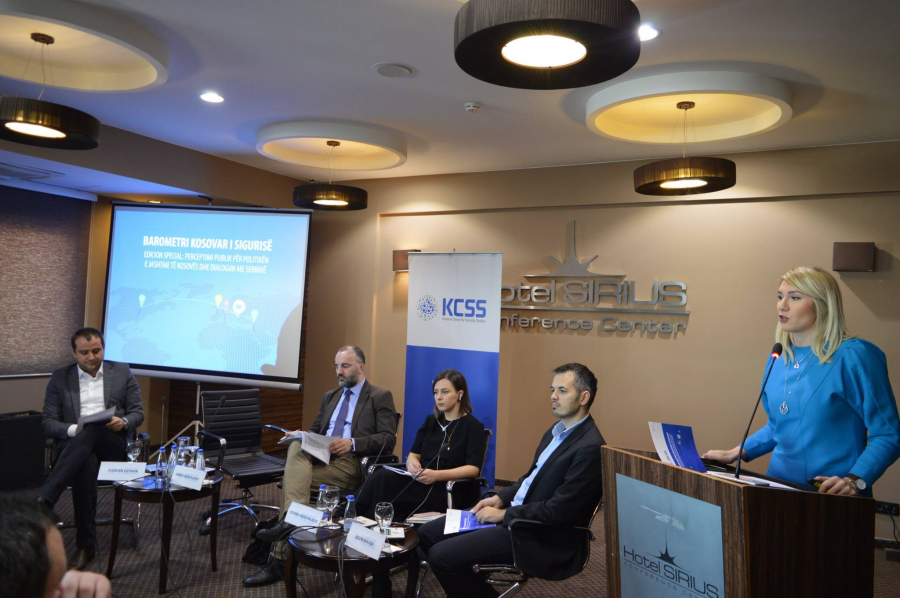9/02/2018

Kosovar Centre for Security Studies has published the results of the seventh edition of the report: Kosovo Security Barometer- Special Edition: Public Perception toward Kosovo’s Foreign Policy and Dialogue with Serbia. Similar to previous editions, this report reflects the results of the perceptions of citizens regarding several aspects such as strategic partners for Kosovo, regional states, main global actors and multilateral structures such as EU and NATO.
The pattern of positive attitude toward Albania remains unchanged over the years. Albania – among all countries listed in the survey questionnaire – is considered as the friendliest country toward Kosovo and the biggest ally and strategic partner. Whereas, the results of the KSB 2017 re-confirm the negative trend of negative perceptions toward Serbia. Around 90.0 per cent of the citizen see Serbia through a negative lens. Moreover, large portions of the respondents have considered Serbia as one of the biggest external security threat toward Kosovo.
The results of the KSB 2017 re-affirm the neutral and positive perceptions toward Macedonia and Montenegro. Croatia has been perceived as a friendly country, as an ally, a strategic partner for Kosovo – including here the military component. Bosnia and Herzegovina, on the other hand, is seen as neutral toward Kosovo.
United States of America is perceived as very friendly toward Kosovo. The US is viewed beyond the framework of the conventional bilateral relations; it is perceived more as one of the biggest ally and strategic partner for Kosovo. Germany is ranked as the biggest Kosovo ally, and strategic partner. Statistically speaking, 88.9 per cent of the respondents qualified Germany as a very friendly state toward Kosovo. Turkey is seen as a potential strategic partner for Kosovo, Followed by Great Britain and France.
Russia’s approach toward Kosovo has been considered as a very hostile. The negative trending, similar to the previous KSB editions, is attributed to the close diplomatic ties between Russia and Serbia.
Around 93.6 per cent believe that Kosovo should become part of the EU in spite of it being a “far-fetched” goal. Similarly, 89.0 per cent of the citizens believe that Kosovo should seek membership into NATO. Albeit for a limited percentage of the respondents, the enhanced interaction with NATO has been listed as a positive indication, and a window of opportunity for Kosovo’s membership into NATO.
A vast majority of the respondents, exactly 57.3 per cent (58.0 per cent from Albanian, and 61.0 per cent from the Serbian respondents), have declared that the agreements reached in Brussels have zero impact in normalization of relations.
Around 73.0 per cent of the respondents believe that the Association is a very harmful agreement which is going to have a significant in Kosovo’s internal functioning. It is imperative to mention that a very limited percentage of the Serbian respondents, around 6.0 per cent, believe that the Association will have negative impact in Kosovo.
Around 48.5 per cent of the Albanian respondents believe that Serbia is benefiting more than Kosovo, this highly refers to the EU perspective for Serbia as the frontrunner in the EU integration process. On the other hand, around 29.3 per cent of the Serbian respondents believe that Kosovo is benefiting more than Serbia.
The report can be found here